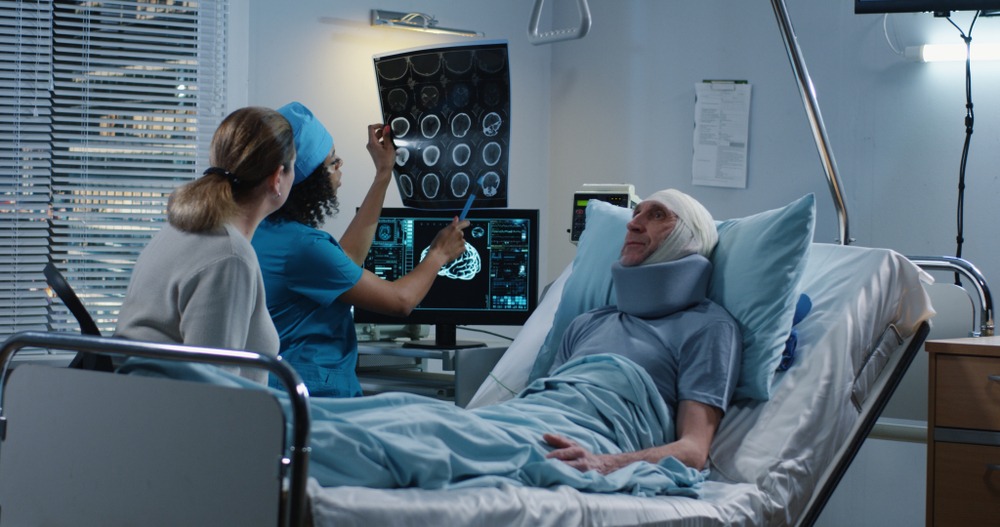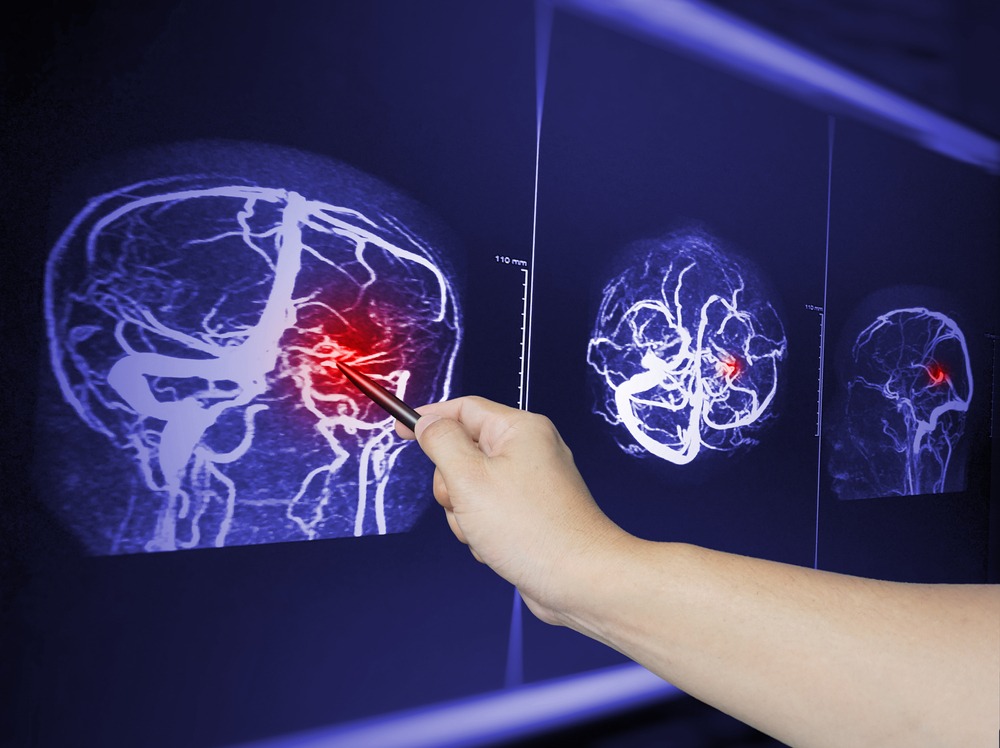![]() Contact Us (866) 499-8989
Contact Us (866) 499-8989
What Type of Nerve Damage Could Happen in a Car Accident?
- Overview of Nerve Damage in Car Accidents
- Types of Nerve Damage
- Consequences of Nerve Damage in a Victim's Life
- Economic, Non-Economic, and Punitive Damages You May Recover for Nerve Damage After a Car Accident
- Talk to a Car Accident Lawyer at No Cost Today
- Home
- FAQs
- Personal Injury
- What Type of Nerve Damage Could Happen in a Car Accident?
Unfortunately, many types of nerve damage can occur in a car accident, and they may be very burdensome for the victims. The most common types of nerve damage are peripheral nerve injury, radiculopathy, and autonomic nerve damage. It is important to keep in mind that nerve damage can affect everything from muscle function to the feeling in the hands and feet.
Nerve damage can bring physical, emotional, and financial burdens. This section will explore the types of nerve damage commonly caused by car accidents, the consequences these injuries can have on a victim’s life, the economic, non-economic, and punitive damages you may recover, and the importance of talking to a Phoenix nerve damage lawyer.
Overview of Nerve Damage in Car Accidents
The human body relies on an intricate network of nerves to function properly. These nerves act like messengers, carrying electrical signals between the brain, spinal cord, and muscles. They tell your muscles when to move, help you feel sensations like touch and pain, and even control involuntary functions like heart rate and digestion.
During a car accident, the sudden forces involved can injure these delicate nerves in various ways. Depending on the severity of the crash and the part of the body impacted, the injuries can range from mild tingling to severe loss of movement and chronic pain. The effects may not be immediately noticeable, and symptoms can take weeks or even months to develop fully. Talk to your doctor about your symptoms and seek the counsel of a Phoenix personal injury lawyer.
For a free legal consultation, call (866) 499-8989
Types of Nerve Damage
There are two main types of nerves: motor nerves control our muscles, allowing us to move and function, and sensory nerves carry information about touch, temperature, and pain. Depending on the type of nerve affected, a car accident can cause different injuries:
Peripheral Nerve Injury
This is the most common type of nerve damage from car accidents. It affects the nerves outside the brain and spinal cord, which run through the limbs and torso. Symptoms of peripheral nerve injuries can include pain, numbness, tingling, weakness, and burning sensations in the arms, legs, hands, or feet.
Radiculopathy
This condition occurs when the nerve roots exiting the spinal cord are pinched or irritated. This often causes sharp, shooting pain that travels along the path of the affected nerve. For example, radiculopathy in the lower back can cause sciatica pain that travels down the back of the leg and can make sitting or standing difficult.
Autonomic Nerve Damage
This less common type of nerve damage affects nerves that control involuntary body functions like heart rate, blood pressure, sweating, bladder control, and sexual function. Symptoms can vary depending on the nerves involved. For instance, difficulty regulating body temperature or problems with urination could be signs of autonomic nerve damage.
It’s important to remember that everyone heals differently. Nerve damage symptoms can develop over time, so even if you’re not experiencing pain, numbness, or weakness right away, be sure to see a doctor if you notice any changes in how you feel following a car accident.
Consequences of Nerve Damage in a Victim’s Life
Nerve damage caused by a car accident can significantly impact a victim’s life in many ways, both physically and emotionally. Here are some of the common challenges people face:
- Chronic pain. Nerve pain can be constant, burning, or electrical in nature. It can make it difficult to sleep, work, or simply enjoy everyday activities. Imagine the frustration of dealing with persistent pain that disrupts your daily routine.
- Loss of function. Depending on the nerves affected, muscle weakness, paralysis, or loss of coordination can significantly impact mobility and daily tasks. Simple things like getting dressed, preparing meals, or driving a car can become difficult or even impossible. This loss of independence can be incredibly frustrating for accident victims.
- Sensory loss. Numbness or tingling can make it difficult to feel objects or temperature changes, increasing the risk of burns or injuries. For example, you might not realize you’re gripping a hot cup of coffee too tightly until it burns your skin. This can make everyday activities dangerous and frustrating.
- Emotional distress. The chronic pain, loss of function, and uncertainty associated with nerve damage can lead to anxiety, depression, and social isolation. Imagine the emotional toll of dealing with constant pain on top of the limitations it places on your life. Seek support from loved ones and mental health professionals if you’re struggling to cope after a nerve damage diagnosis.
Living with nerve damage can be very challenging, but there are treatment options available to help manage the symptoms and improve your quality of life. If you’ve been in an accident and suspect you might have nerve damage, it’s important to see a doctor as soon as possible for a proper diagnosis and treatment plan.
Click to contact our personal injury lawyers today
Economic, Non-Economic, and Punitive Damages You May Recover for Nerve Damage After a Car Accident
The financial and emotional impact of nerve damage after a car accident can be devastating. Medical bills, lost wages, and the inability to enjoy activities you once loved can create significant burdens. If you’ve been injured in a car accident caused by someone else’s negligence, your car accident lawyer in Phoenix can help you recover compensation for various damages:
Economic Damages
These are the tangible costs associated with your nerve damage. They include:
- Medical expenses. Past, present, and future medical costs associated with diagnosing and treating your nerve damage, including doctor visits, physical therapy, medications, and surgery.
- Lost wages. Compensation for income you are unable to earn due to your injuries, including missed workdays and reduced earning capacity, if your nerve damage affects your ability to work long-term.
Non-Economic Damages
These are the intangible losses associated with your pain and suffering. They may include:
- Pain and suffering. Compensation for the physical and emotional pain caused by your nerve damage, including chronic pain, burning sensations, and loss of sleep.
- Loss of enjoyment of life. Compensation for the inability to participate in activities you once enjoyed due to your injuries, such as hobbies, sports, or social outings.
- Loss of consortium. If your nerve damage affects your intimate relationships, you may be entitled to compensation for this loss.
Punitive Damages
In some cases, punitive damages may be awarded to punish the at-fault party for gross negligence or intentional misconduct. This is typically reserved for situations where the at-fault party acted with a reckless disregard for the safety of others. For instance, punitive damages may be available in drunk driving accident cases.
It’s important to understand that every situation is unique. The specific types and amounts of damages you may be entitled to will vary depending on the severity of your nerve damage, the impact it has on your life, and the specific laws of your state. Consulting with a personal injury lawyer can help you understand your legal options and fight for fair compensation for the damages you’ve suffered.
Complete a Free Case Evaluation form now
Talk to a Car Accident Lawyer at No Cost Today
If you’ve been in a car accident and are experiencing symptoms like pain, numbness, tingling, weakness, or muscle spasms, it’s important to see a doctor to get a proper diagnosis. Early intervention can improve your chances of a full recovery.
In addition to seeking medical attention, consulting with a personal injury lawyer can help you understand your legal options and fight for fair compensation for the damages you’ve suffered. Contact Zanes Law today to schedule a free consultation, where we can discuss your case and help you make informed decisions about your future.
Call or text (866) 499-8989 or complete a
Free Case Evaluation form
 Injury Lawyer Doug Zanes Interviewed For “Business Leader Spotlight”
Injury Lawyer Doug Zanes Interviewed For “Business Leader Spotlight”
Doug was recently interviewed by Randy Van Ittersum on the "Business Leader Spotlight Show." It was a great experience and gave him the opportunity to share important topics that are super
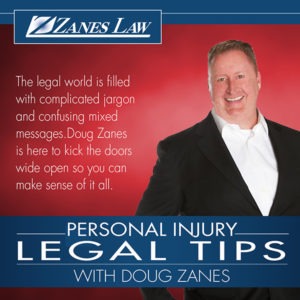 Need Personal Injury Legal Advice? Listen to Our NEW Podcast by Doug Zanes!
Need Personal Injury Legal Advice? Listen to Our NEW Podcast by Doug Zanes!
We are excited to announce that we have officially launched the Zanes Law Personal Injury Legal Tips podcast, featuring advice from Zanes Law owner and responsible attorney Doug Zanes. When
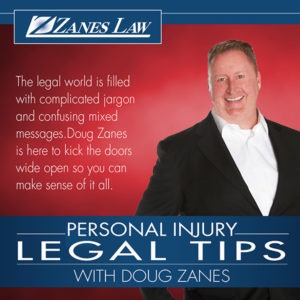 Should you hire an injury attorney? 5 Things You Need to Know
Should you hire an injury attorney? 5 Things You Need to Know
We know that when you’ve been injured in an accident, it can be difficult to take legal action quickly. After an accident, you might just want everything to be over and done with, so you
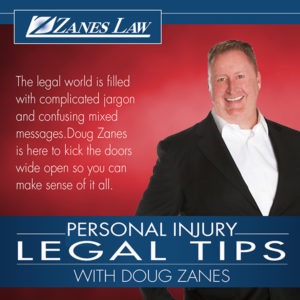 Can I Settle An Injury Claim On My Own?
Can I Settle An Injury Claim On My Own?
Nobody expects to be in an accident—let alone get injured in an accident—but when it does happen, you may be asking yourself a lot of questions, including, “Can I settle an injury claim on my
Receive a Free, No-Obligation, Case Evaluation Now


